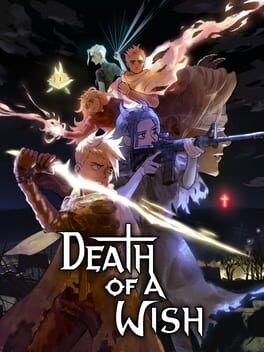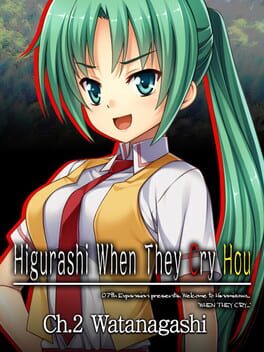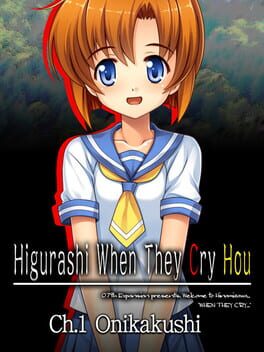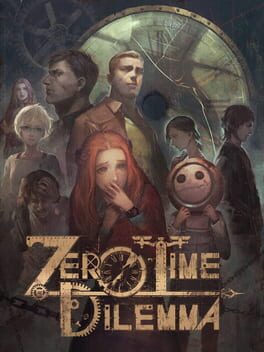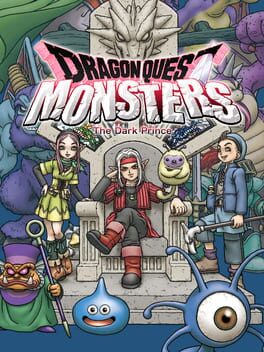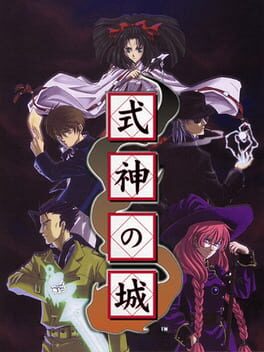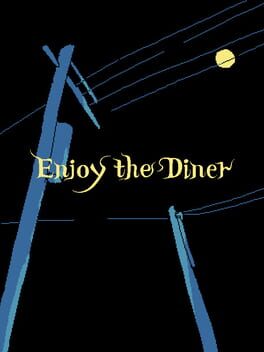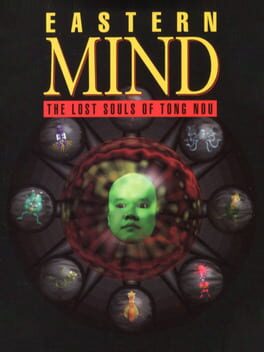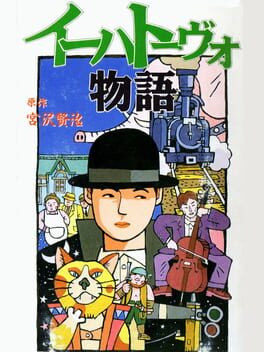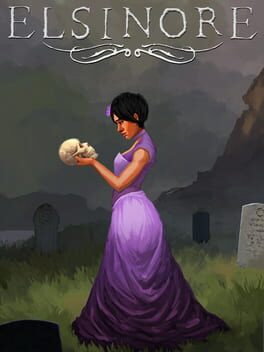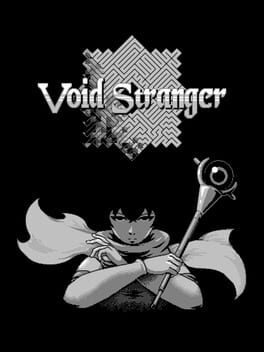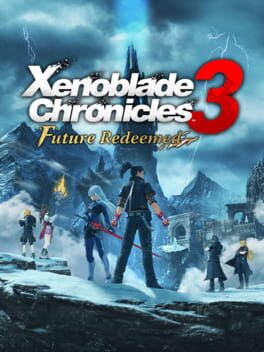wingXblade
2024
Death of a Wish is a luscious and vibrant follow-up (not a sequel) to melessthanthree's debut Luach: Born of a Dream. Where Lucah was a fearful and taciturn character-action romp through dark corridors, Death of a Wish is boisterous and vengeful, busting open its predecessor's hallways for a complete RPG experience: exploration, party members, item hunting, secret bosses, the works. Death of a Wish's combat is cutthroat, demanding you juice every possible option available to you as the lead Christian recklessly stomps down his bloody warpath without ever making you feel too weak. I completed my first play of the game at level 1 and the hardest difficulty available, while for others there are really generous difficulty modifiers beyond plain difficulty selection. As you advance, the genre-familiar action systems and narrative pieces (for those who've played Luach) unravel to take on new forms and demands. The player and Christian must learn to let go of what they think is right, even if it is painful or uncomfortable, to truly achieve their goals. Death of a Wish is a sublime action game that really cannot be passed up by fans of the genre or those looking for expansive queer stories in fiction that go beyond romance and slice of life.
(this one is a little steam review-y because I wrote over there first hehe)
(this one is a little steam review-y because I wrote over there first hehe)
A really phenomenal development upon Onikakushi-hen, Watanagashi-hen roots the exceptional horror story at its core with something even more fearsome than ghosts and curses: the unreconciled feudal remnants left behind in a rapidly imperializing nation. Ryu07's knows horror doesn't come from pulp or genre, but from the unmistakable shocks of reality, when what happening in front of you cannot possibly be understood alone. Watanagashi is a heart-rending and essential entry in Ryu07's repertoire and in the crawling mystery of Hinamizawa.
A stone cold classic. I famously always pitter out on reading Higu before getting to the answer episodes, but I can't really complains because it's such a blast to read Onikakushi again and again. A perfect capsule of novel games at a certain moment in history that, at the same time, has a timeless appeal in all its anachronisms. Love your friends, die laughing as you pummel them with a bat.
Probably the Uchikoshi's strongest and boldest work after ever17 and 999. It is fairly maligned for really being another completely different thing in a series which is barely a series. Did a whole fucking podcast on this franchise which culminated in "actually this game rocks".
God I finally fucking finished this shit. Where The Third was a big forward facing world expansion, Hajimari is a fucking victory lap. The way it doubles back on everyone's arc in the main plot is a little exhausting, where I often found myself wishing this was just C's story with occasional interludes with the rest of the cast. It's all really slight, which might feel like a downgrade considering how strong a game Kevin and Ries were able to support, but the main star is really the Reverie Corridor and the daydreams. The goofy ass expanded cast is so nonsensically power-scaled to reflect who's in the spotlight of the Erebonia arc that I can't get mad about shit like the Liberl team being horrible units. The numbers go up a ridiculous amount to the point where I feel bad for the bosses. The Reverie Corridor is definitely a little too long at a high level view but if it kept dripping out daydreams I would have never complained. If Trails had to pivot to being a VN should Falcom crumble, it might be to its benefit. Falcom has such a rich sense of character that they can put whoever the fuck in front of me and I'll clap and laugh like a seal. Sure hope Kuro is a little shorter 🫣
2020
Really lovely game that will be a YA RPG cornerstone for decades. Holds itself back trying to do too much normal RPG stuff with horrible dungeons and muddy stat growth when it could have benefited from a tighter puzzle battle approach and an earlier integration of the Yume Nikki-type segments. It also would have been great to have had table setting for the bespoke twist sooner so that it could actually mean something other than being some twisted fucked up shit, but the character work and the vibe cultivated by the art and music are so so vibrant that I really don't care so much.
2001
Middle of the road shmup with a neat cast and setting but really half thought out shot and power system lacking clear character diversity. There's a huge risk-reward system as you have improved shot while grazing, but focus shots are very situational and lack the same graze benefits. Enemies tend to drop just one power up so collection is more important than clearing the screen, but obviously certain enemies will be bigger hazards. Each character has mostly the same speed so there's a very singular way the game wants to be approached for the most part and that means just fucking dealing with the actual obstacles while you scramble to collect. I like feeling weak in a shmup but it feels like emerging genre staples were just kind of copied in (tap vs focus shot, breakable boss parts but they do nothing) The player needs just one more tool or a standalone focus to approach situations expressively.
2023
Beautiful, delicate, and magnificently conservative adventure game. What seems like it'll be a loose metaphysical purgatory story hits all the same vibes before transforming into a very grounded group of character vingnettes. Enjoy the Diner has a certain cadence and whimsy that has become extremely lost or thinned out in a post-wholesome games society.
Pretty fine click around adventure game with mostly info retrieval based puzzles rather than lock-and-key type stuff. Really cool images conjured here, but the actual progression track of the game feels really arcane. The way the world connects is very exciting as an obvious draft to LSD, but the routing of the proper adventure game stuff constantly undercuts explorations. Neat thing to poke at with a guide if you can deal with early adventure game jank.
1993
Beautiful and methodical pseudo-fanfiction about the works of Kenji Miyazawa and really more about his legacy in culture. There's a big element of this game absolutely not having the same takeaway about Miyazawa's works, especially in the way this game thinks of the Galactic Railroad, but it is making delicate and future-looking moves with the adventure game formula that grip the RPG Maker community to this day that make it real easy to not get so hung up on that. Ihatovo Monogatari imposes a quest to chase down a fleeting mythical figure against the daily mundanity of the downtrodden workers, farmers, peasants, and youth. While you float through fantastical moments, life moves on: the young family moves south for the winter, the scorned worker is chased out of town suddenly, the boy you helped out last week died of a fever off screen. The things you chase in life can only amount to the character of your actions that get you there. Live wisely, fiercely, and kindly to struggle along side those who surround you.
2019
CWs for Elsinore: Drowning, knives, body horror, torture, dismemberment.
A very exciting attempt at Shakespearean gaming that makes a bold pitch without too much substance behind it. Managing the time loop and all the disparate leads rocks for the front half of the game. Elsinore Castle has a strong sense of place and all of the characters are just rendered enough to both capture the play and suggest a larger thought about Hamlet. The game however breaks away from the original text a little too strongly and suddenly and reads a lot more like fanfiction without critical reasoning for the alterations made. Some of these alternate threads are really exciting, but the ones which are weighted as end states are too dull and head-nodding, punching back their chance to shine to instead hand you a list of monologues to pick from before credits The in your face Umineko references are frankly a little ridiculous when this game ends up demonstrating nothing about how WTC handles the gravity of time loops because I was definitely not playing with the intention of "saving" Ophelia at any point. Elsinore is a fun adventure-like Hamlet dollhouse to pick at for its opening hours or so, but if you're looking for careful thoughts on the original play or a tightly composed time loop narrative, you're not going to find it here.
A very exciting attempt at Shakespearean gaming that makes a bold pitch without too much substance behind it. Managing the time loop and all the disparate leads rocks for the front half of the game. Elsinore Castle has a strong sense of place and all of the characters are just rendered enough to both capture the play and suggest a larger thought about Hamlet. The game however breaks away from the original text a little too strongly and suddenly and reads a lot more like fanfiction without critical reasoning for the alterations made. Some of these alternate threads are really exciting, but the ones which are weighted as end states are too dull and head-nodding, punching back their chance to shine to instead hand you a list of monologues to pick from before credits The in your face Umineko references are frankly a little ridiculous when this game ends up demonstrating nothing about how WTC handles the gravity of time loops because I was definitely not playing with the intention of "saving" Ophelia at any point. Elsinore is a fun adventure-like Hamlet dollhouse to pick at for its opening hours or so, but if you're looking for careful thoughts on the original play or a tightly composed time loop narrative, you're not going to find it here.
2023
CN for Void Stranger: Sexual harassment
A lush and witty sokobon-hybrid that stumbles over making sense of its mutli-genre style brakes. The way the tile swap game slowly shifts in and out of a Zelda-like dunegeon crawler to a La Mulana action-riddler is really breathtaking and exciting, but I ended up feeling way less about this as it came to a close. Where Zeroranger effortlessly lines up its sparse narrative with the stressful emotional player-arc of trying to 1cc a shmup, Void Stranger boasts a generic mélange of "don't give up" vibes that fails to celebrate its own strengths or its genre heritage. The constant micro genre-shifts really are delightful, but they walk too far away from the core frustration-to-lightbulb-moment cycle of this kind of puzzle game. I like the grunt work and guess-and-check solutions this game makes a player deal with, but after a certain point I really do not need to descend the tower twice per reattempt of the final sequence. I thought the problem with this game would be having too much text, but besides the dull swing at a System Erasure cinematic universe, the story is perfectly tender and understated despite all the women being naked for the entire last third. What I'd really like to see from System Erasure in the future is a bit more follow-through on the clear central design idea and an understanding of where to put the period on the game. Void Stranger is a blast and really so so so exciting to pull apart but it's far too gray in-between the text behemoth of La Mulana and their own debut arcade joyride.
A lush and witty sokobon-hybrid that stumbles over making sense of its mutli-genre style brakes. The way the tile swap game slowly shifts in and out of a Zelda-like dunegeon crawler to a La Mulana action-riddler is really breathtaking and exciting, but I ended up feeling way less about this as it came to a close. Where Zeroranger effortlessly lines up its sparse narrative with the stressful emotional player-arc of trying to 1cc a shmup, Void Stranger boasts a generic mélange of "don't give up" vibes that fails to celebrate its own strengths or its genre heritage. The constant micro genre-shifts really are delightful, but they walk too far away from the core frustration-to-lightbulb-moment cycle of this kind of puzzle game. I like the grunt work and guess-and-check solutions this game makes a player deal with, but after a certain point I really do not need to descend the tower twice per reattempt of the final sequence. I thought the problem with this game would be having too much text, but besides the dull swing at a System Erasure cinematic universe, the story is perfectly tender and understated despite all the women being naked for the entire last third. What I'd really like to see from System Erasure in the future is a bit more follow-through on the clear central design idea and an understanding of where to put the period on the game. Void Stranger is a blast and really so so so exciting to pull apart but it's far too gray in-between the text behemoth of La Mulana and their own debut arcade joyride.
A dramatic improvement over the main game that fails to do as much damage control as Torna did for Xenoblade 2. The logical connections to the franchise universe are made more clear, but I didn't want any of that in the first place! It's fucking weird but mostly very funny to make Shulk and Rex dad guys. Junya Enoki is great as Matthew here but he's also literally just playing Itadori Yuji. All that's really achieved here is getting to the caliber of shitty Chrono Cross, down to having very similar farewell scenes at the end. The modifications to the exploration and combat is a cool mix of old and new, but it fails to enrich or remedy the ludicrous gaps in the main game. Future Redeemed mostly highlights what really should have been in the game in the first place, in the sense of more obvious callbacks via environmental objects and narrative details, neither of which would be an issue of further dev time. The length of this expansion is its saving grace and, along with Torna, is a constant testament to the fact that Monolith should be making shorter games.
CWs for Xenoblade Chronicles 3: body horror, mind control
A very beautiful and patient young people's road trip RPG via the absolute sobriety of FFX which is unfortunately and devastatingly ruined by a botched retreading of Xenogear's big twist late in the game along with a generally shallow back third. The ways in which this game decides to be a Franchise Sequel at the last moment completely guts a placelessness and emptiness of the world that really flavored the meandering coming of age journey that most of the game is. This shift makes the unremarkable geology of the world instead feel like poor design rather than a meaningful choice, where clear environmental callbacks are discarded for indiscernible house-style melange.
The character work done in the first two thirds of this game is easily the best Monolith has ever done and then it gets spat on and torn apart for every hour the game continues after about chapter six. Literally everyone's character arcs have been resolved in totality, yet everyone is dragged around as they must bumble through resolving the equally incomprehensible nightmare of Xenoblade 2's ending. Entire factual details are left out or hidden at the margins while the combat goes completely unchanged for thirty grueling and needless hours. I cannot reiterate how much I loved this game and how severely I soured on it as it developed. Begging the powers that be to free Monolith from making Time-on-machine farms and have them make weirdo shit again.
A very beautiful and patient young people's road trip RPG via the absolute sobriety of FFX which is unfortunately and devastatingly ruined by a botched retreading of Xenogear's big twist late in the game along with a generally shallow back third. The ways in which this game decides to be a Franchise Sequel at the last moment completely guts a placelessness and emptiness of the world that really flavored the meandering coming of age journey that most of the game is. This shift makes the unremarkable geology of the world instead feel like poor design rather than a meaningful choice, where clear environmental callbacks are discarded for indiscernible house-style melange.
The character work done in the first two thirds of this game is easily the best Monolith has ever done and then it gets spat on and torn apart for every hour the game continues after about chapter six. Literally everyone's character arcs have been resolved in totality, yet everyone is dragged around as they must bumble through resolving the equally incomprehensible nightmare of Xenoblade 2's ending. Entire factual details are left out or hidden at the margins while the combat goes completely unchanged for thirty grueling and needless hours. I cannot reiterate how much I loved this game and how severely I soured on it as it developed. Begging the powers that be to free Monolith from making Time-on-machine farms and have them make weirdo shit again.
